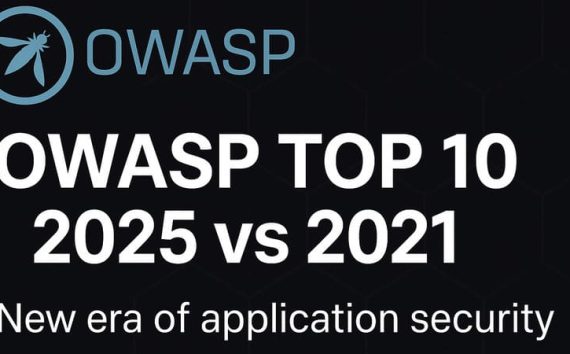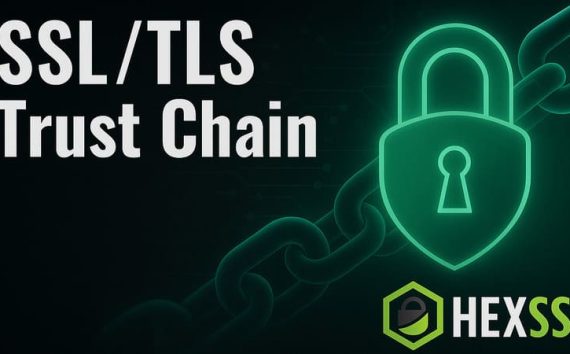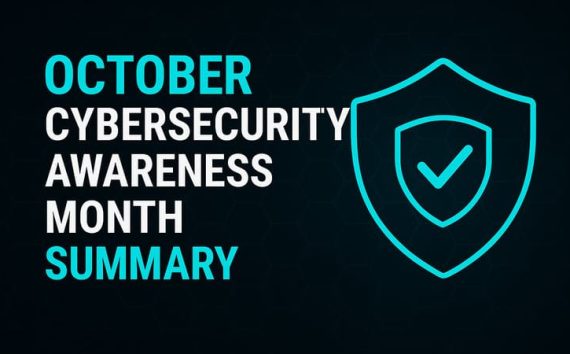
OWASP Top 10 2025 – What’s New and How It Impacts Application Security
Organizational project OWASP (Open Web Application Security Project) has for many years published the Top 10 list of the most […]
We offer more than 100 SSL certificates from 6 vendors

Sectigo SSL certificates (formerly Comodo CA) are the fastest and most cost-effective way to secure online transactions. Low costs, qualified support and a package of additional services make Sectigo SSL certificates an ideal solution for each size businesses.

DigiCert secures the websites, data, and applications of the world’s top companies. As a global provider of Internet trust, authentication, and security solutions, DigiCert delivers the highest security standards to protect your business.

GoGetSSL is a reputable provider of SSL certificates that has been offering comprehensive security solutions for websites, applications, and online transactions for over a decade, based on the infrastructure of leading certificate authorities such as DigiCert and Sectigo.

GeoTrust is one of the oldest and proven SSL certificates vendor. World class SSL certificates, a recognizable and trusted GeoTrust brand and a wide range of offer are the highest security guarantees for your online business regardless of its size.

RapidSSL is a trusted and well-known brand that puts high security and speed of SSL certificate activation. The RapidSSL certificates provide secure encryption and their additional advantage is the speed of activation through automated validation.

The combination of Thawte SSL certificates and uncompromised infrastructure and world-class customer service make Thawte good choice for online protection. Protect your data, secure your business and win the trust of your customers thanks to Thawte.
If you don't know which solution will be good for you - contact our sales department

SSL certificates with DV validation are the fastest and easiest method to secure your site with an SSL certificate. The automated validation process allows you to obtain an SSL certificate in a few minutes.

SSL certificates with OV validation are directed to companies and organizations. A more complex verification process confirming the existence of a company guarantees increased trust from customers allowing them to view your company details added to the certificate.

SSL EV certificates are the highest level of security supported by a thorough verification process. SSL EV certificates provide the highest level of trust from customers by displaying green address bar and company name.

Wildcard SSL certificates are the perfect solution to protect an unlimited number of subdomains and the main domain with just one SSL certificate. By managing only one SSL certificate, you can save time and money.

SSL Certificates for email and documents signing allow to ensure full security of documents and e-mails. Ensure the confidentiality of your e-correspondence by encrypting messages and ensuring its full integrity.

With Multi-Domain SAN/UCC SSL certificates, you can protect up to 1000 domains (FQDN), IP addresses, host names with just a single SSL certificate. Thanks to that you can save time and money to manage one ssl certificate.

Code Signing SSL certificates allow software developers to digitally sign created software before distribution on the Internet. The end user, by downloading a digitally signed program, can be sure that the code comes directly from the manufacturer and has not been modified by third parties since it was signed.

CMC/VMC Mark certificates confirming the authenticity of the organization's logo in BIMI (Brand Indicators for Message Identification) compliant email inboxes. They enable the display of a verified trademark next to the sender's name, increasing recipient trust and enhancing brand recognition.

FLEX SSL certificates are an innovative solution that allows securing single domains, subdomains, wildcard domains, and public IP addresses under a single SSL certificate. They enable flexible infrastructure management without the need to purchase multiple SSL certificates.
An SSL certificate is a bit of code on your web server that provides security for online communications. When a web browser contacts your secured web site, the SSL certificate enables an encrypted connection.
SSL certificates also inspire trust because each SSL certificate contains identification information. When you request an SSL certificate, a third party (SSL Vendor) verifies your organization’s information and issues a unique certificate to you with that information. This is known as the authentication process.
SSL certificates keep online interactions private even though they travel across the public Internet, and they help customers gain the confidence to provide personal information on your website. If you ask users of your website to sign in, enter personal data such as credit card numbers, or view confidential information such as health benefits or financial accounts, you need to keep the data private. You also need to assure them that your website is authentic.
SSL is also used for email servers, web-based applications, server-to-server communications and more.
1. Generate a Certificate Signing Request (CSR) for the web server you plan to secure. If you do not manage your own web server, contact your web host or Internet service provider to request a CSR.
2. Select an SSL Certificate and click buy.
3. All necessary information will be delivered to your e-mail.
4. Follow installation instructions for your Web server.
5. Download Site Seal to display on pages within your secured domain.
SSL certificate validation is a technical and procedural process in which Certification Authorities (CAs) and client systems (e.g., browsers) verify the authenticity, integrity, and compliance of a digital certificate with security requirements. It includes multi-stage checks, ranging from confirming domain ownership (in the case of Domain Validation – DV) to legal and administrative verification of the entity (Organization Validation – OV), up to a detailed legal audit in Extended Validation (EV).
DV (Domain Validation), OV (Organization Validation), and EV (Extended Validation) certificates represent hierarchical levels of verification for SSL/TLS digital certificates, differing in the scope of the audit performed by the Certification Authority (CA). A DV certificate provides basic validation limited to confirming domain ownership through mechanisms such as email verification, DNS/TXT records, or file placement on the server. It does not include identity verification of the entity, making it suitable for low-risk websites. OV introduces an additional verification layer, requiring analysis of the organization’s legal documents (e.g., business registry, tax ID), confirmation of its physical presence, and validation of data against public records. This results in the verified company name being displayed in the certificate details, enhancing user trust. EV represents the highest level of security, covering financial, legal, and operational audits of the entity, verification of the applicant’s authority, and detailed inspection of the organizational structure. It enables the full legal name of the organization to be activated in browsers, minimizing phishing risks and boosting brand credibility. Each type of certificate uses the same encryption standards (e.g., AES-256) but differs in the level of trust derived from the validation process, which determines their use – from blogs (DV) to corporate websites (OV) and transactional platforms or financial institutions (EV).
A CSR (Certificate Signing Request) is a structured text file in PEM or DER format, generated on a server, that contains a public key along with entity metadata (e.g., domain name, organization details, location). It serves as a formal request for an SSL/TLS certificate to be issued by a Certification Authority (CA). The process of creating a CSR includes generating a pair of cryptographic keys (public and private), where the private key remains securely stored on the server, while the public key is embedded in the CSR together with identification data in the Subject field (CN – Common Name, O – Organization, C – Country). The CA verifies the authenticity of the data in the CSR during the validation process (DV/OV/EV) and signs it with its private key, creating the final certificate that confirms the ownership and identity of the entity. CSR integrity is digitally protected through a hash (e.g., SHA-256) signed with the server’s private key, ensuring that the request has not been modified during transmission. The CSR is a key element of the trust chain, enabling the binding of a certificate to a specific server and cryptographic infrastructure, while enforcing compliance with X.509 standards and CA security policies.

Organizational project OWASP (Open Web Application Security Project) has for many years published the Top 10 list of the most […]

From us: With this article, we begin a new series of publications on our website: HEXSSL Insight. These will be […]

With the end of October, celebrated worldwide as Cybersecurity Awareness Month, we summarize HEXSSL’s initiatives promoting cybersecurity and digital resilience. […]
